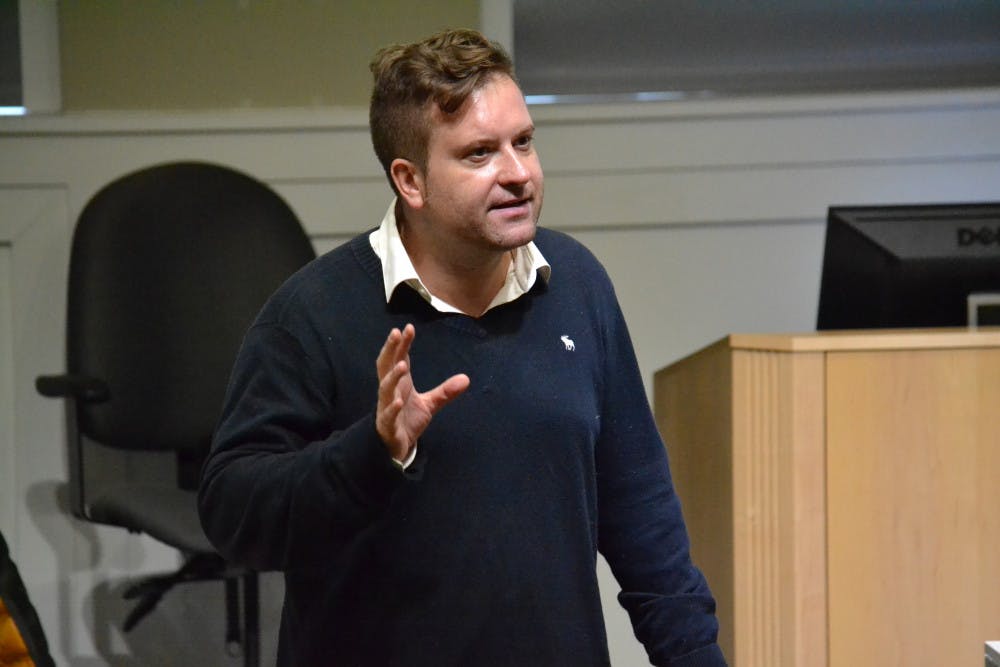By Gannon Meyer
Correspondent
“Absent men = lonely women = strong women.”
With this projected on the screen, Josep M. Armengol, an author of Spanish and American literature and a professor of literature and masculinity studies at Spain’s Universidad de Castilla-La Mancha, gave a lecture at the College on Tuesday, Oct. 25.
Armengol is on a nine-month long trip to the United States, teaching and working with his colleague Michael Kimmel at Stony Brook University in Stony Brook, N.Y. Armengol traveled to the College to teach students about the importance of masculinity in the Iberian Peninsula in his presentation titled “Iberian Masculinities from the Margin: Catalans, Basques and Galicians.”
Hosted by the College’s Department of Women’s and Gender Studies, Armengol hoped to inform the handful of attendees of the role that women in previous generations played in Spain and how those roles affect modern societies worldwide.
“It is crucial for people around the world to understand Iberian masculinities because they are at the root of Hispanic and Latino masculinities, both in Latin America and the USA,” Armengol said. “You can’t understand these without understanding their origins and different versions.”

The earliest trace of rethinking Iberian masculinities was presented in Joanot Martorell’s 15th century chivalric romance “Tirant lo Blanc,” Armengol said. However, the Carlist Wars during the late 19th century completely transformed women’s roles.
Basque country, a northern section of Spain, allowed a temporary emigration during the Carlist Wars. The mass emigration led many men to leave the country in search of work in other parts of Spain.
As a result of the civil wars, “many Basque men enlisted in the Carlist army and women had to take on masculine roles,” Armengol said. “It put men and women on a more equal footing.”
Similar to Basque country, in the 1880s, Galicia made it legal for people to emigrate from the country.
“A lot of men were leaving in large amounts,” Armengol said. “Women had to take the role of the men when they left.”
This reminded John Landreau, a professor of women’s and gender studies, of the increasing percentage of single-mother households in the U.S. Landreau believes the role of American women has shifted dramatically in the past few decades, particularly because of the United States’s war on drugs.
“There is a forced emigration of men into prison because of drugs,” Landreau said. “We have 25 percent of the prison population, but only 5 percent of the global population.”
Like the emigration of Spanish men during the Carlist Wars, American men are being incarcerated, forcing women to take on traditionally masculine roles in modern American society. This leaves women with the obligation to occupy multiple roles, making it harder for families to be raised in the traditional way with both a mother and father figure.
“If you are a single mother trying to raise a family on minimum wage, you can’t do it,” Landreau said. “It is impossible.”
Freshman communication studies major Allison Superior expanded upon Landreau’s perspective.
“With a lot of the arrests being fathers, wives are left to support themselves and their children by themselves,” Superior said. “It becomes very stressful.”
The purpose of Armengol’s lectures are to teach students the importance of the origin of Iberian masculinities in Hispanic cultures around the world.
While there is a lot that can be learned from Armengol’s research and lecture, he has one thing that he wants people to take away: “One idea only: inspiration for their own work.”







